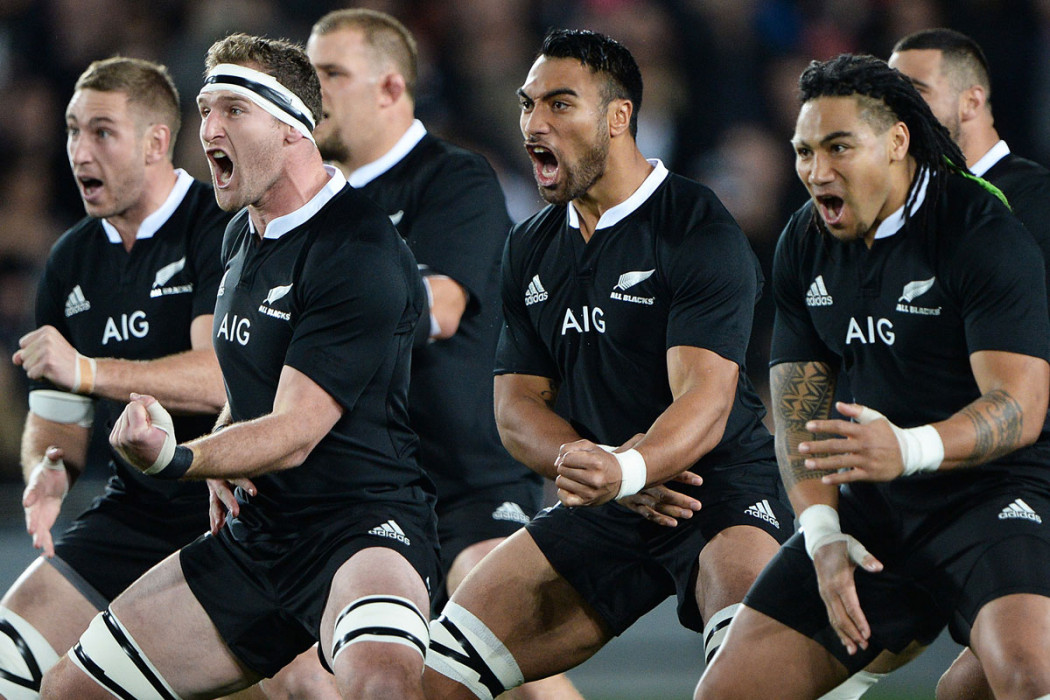Reigning champions New Zealand remained the team to beat less than a year out from the World Cup in England after yet another successful November campaign in Europe.
There’s nothing new in the All Blacks being the yardstick for the global game and their rivals will take some comfort in knowing New Zealand have yet to win the World Cup on foreign soil.
So the fact they were pushed close by both England (24-21) and Wales (34-16) this month before emerging victorious won’t have done the All Blacks any harm, nor will the success of a virtual second-choice side in preserving their unbeaten record against Scotland.
However, all these matches demonstrated how no team goes for the full 80 minutes quite like New Zealand, who have enviable depth.
England found themselves needing two scores in the closing stages against the All Blacks and managed one while Wales conceded 24 points in the final 17 minutes.
“We’ve had to earn the right to win some games,” said New Zealand coach Steve Hansen. “What we’ve found is ways to win ugly.”
Ireland, under the shrewd guidance of Kiwi coach Joe Schmidt, enjoyed contrasting wins over South Africa (29-15) and Australia (26-23) where they demonstrated the ability not just to vary their tactics from game to game, but during matches as well.
– Game by game –
Perhaps the only thing holding back Ireland from mounting a sustained World Cup challenge is their perennial happiness to cast themselves as underdogs.
Ireland fans must hope captain Paul O’Connell’s words after the Australia match were for public consumption only and that, privately at least, the squad have rather more self-belief.
“We’ve been here before and it didn’t serve us well,” said O’Connell. “All we are trying to do is improve game by game.”
For England, Saturday’s 26-17 victory over World Cup pool rivals Australia was timely following defeats by New Zealand and South Africa.
That it was achieved on the back of traditional English scrummage power ought not to embarrass anyone in the Red Rose camp on the receiving end of jibes about a lack of midfield creativity.
Indeed if England top a group featuring Wales and Australia, they have a route to the climax of the World Cup where they wouldn’t face another major southern hemisphere side until the final.
“The World Cup will look after itself,” said Lancaster. “Australia will have a lot of time with their new coach (Michael Cheika). They took us to the wire and they’ll only get better and better.”
– ‘Unbelievably strong’ –
But for all their back-line class, Cheika knows Australia must improve a set-piece which ought to be bolstered by the return of currently injured front-row Stephen Moore.
South Africa, developing an all-round game, may have beaten England but a disappointing tour ended with a 12-6 defeat by Wales. South Africa were, however, without 25 players in Cardiff.
“I’m very positive this doesn’t have any bearing on the World Cup,” said South Africa coach Heyneke Meyer.
“We will have an unbelievably strong squad, unbelievably well prepared.”
For 2011 World Cup semi-finalists Wales, the win over the Springboks was just their second in 28 games against the ‘big three’ of South Africa, New Zealand and Australia under coach Warren Gatland.
“The most pleasing thing is that we were able to go through those moments when things don’t go well for us and come out the other side,” said Gatland.
Trying to fathom the form of France, who in 2011 lost to Tonga before coming within one point of beating New Zealand in the final, remains as hard as ever.
Victory over Australia (29-26), with wing Teddy Thomas impressing, was followed by an 18-13 loss to Argentina.
The Pumas’ success in the latter match was a reminder of their ability to be effective World Cup ‘spoilers’.
Argentina’s players had more right to be shattered then anyone given they compete in the southern hemisphere Rugby Championship while many of their key players are with European clubs.
Yet it was France coach Philippe Saint-Andre who was left lamenting his side’s inability to play successive tough matches just 10 months out from a World Cup that will make similar demands of his side.
“We have some players who struggle at this level to compete for 80 minutes in intense and ferocious matches one after another,” he said.
But they could yet be a World Cup force even if they splutter in the upcoming Six Nations. – Agence France-Presse
































